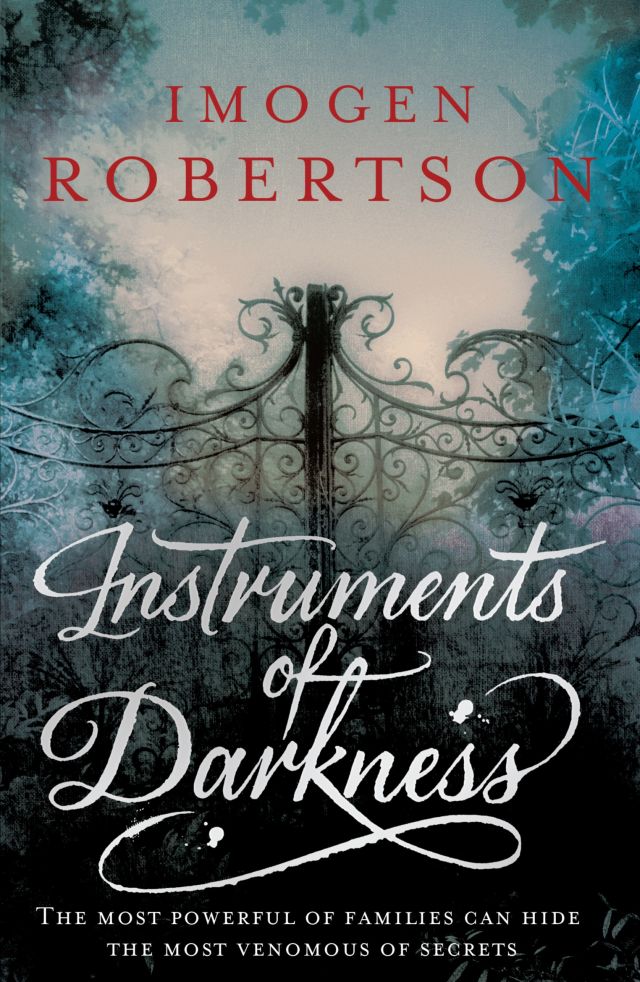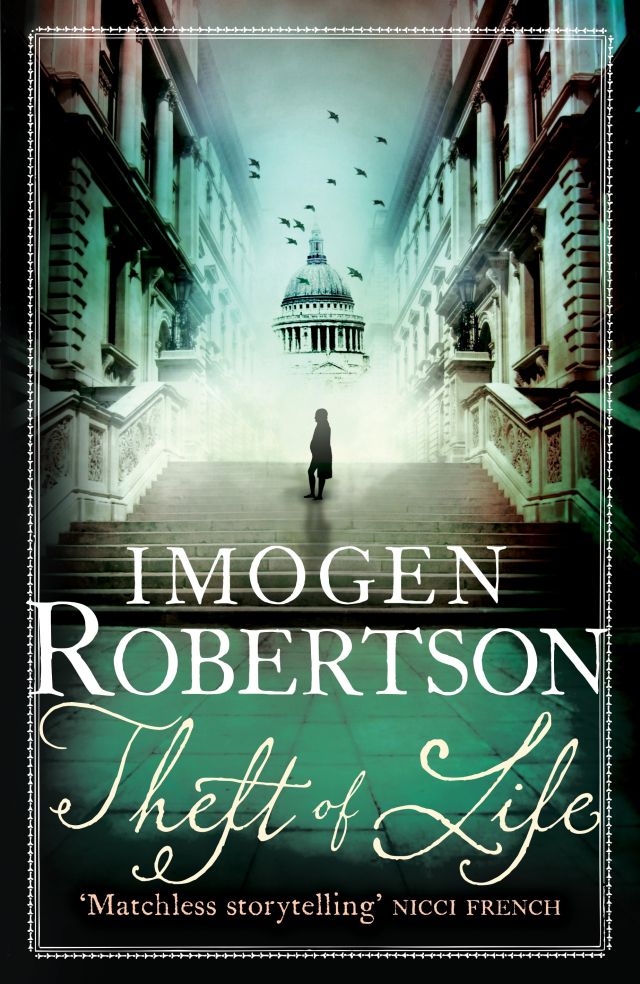Author Imogen Robertson discusses creating complex protagonists and asks: are you a lover, a puppet-master or a Dr Frankenstein?

Imogen Robertson asks: are you a lover, a puppet-master or a Dr Frankenstein?
Every character in a novel starts off as a ghost - someone we catch a glimpse of from the corner of our eye - the idea of an idea. How do we create a living being out of that smoke? It’s not easy. For a character to convince on the page the writer needs to know and understand their world, and that involves a mix of imaginative and practical research.
We and they begin in the imagination, of course. Start making notes. What does this person look like? Where do they live? Some of this will be bound up with the role you expect the character to play in a novel, but don’t concentrate at this stage on what they will be up to in the finished book. Consider their physical appearance and voice, their economic world - are they rich or poor? How do they make a living? Then you can consider their emotional lives. What makes them happy? How do they feel about their situation in life? Do they get on with their family? Do they have lots of friends or none at all?
I know some writers like to interview their characters or draw up CVs for them, and those can be useful tools to get you going, but I find I learn more about my characters by seeing them in action. I often write scenes which never appear in a finished novel to see how my characters will react in different situations - are they the sort of person who is going to argue about politics at a formal dinner with the guest of honour, or are they terrified of letting people know they have any opinion at all? These micro-scenes let me begin to build a living human being, then I start to understand what drives them to act in my novel.

Now it’s time for the practical research. If you want your lead to be a portrait painter, then you are going to have to know about painting and the art market and not just what you can google in twenty minutes. You need to know their tools, the language of their craft, the smells and textures of their studios and the rates of pay they might be getting at different stages of their careers. Same thing if your protagonist is manager of a hedge fund, a school-teacher, a TV director or a policeman. If the character is going to live you need to understand their days, the ordinary days. Think of yourself as a mix of a therapist and a private investigator. Sometimes you are listening to your character describing their childhood, sometimes you are pawing through their bank accounts or interviewing their colleagues.
I promise if you put your time in and get to know your characters this way then you will come up with interesting, complex people. It can be tough to do this work when you want to get on with actually writing the book, though. Just remember this process should help you avoid becoming the lover, the puppet-master or Dr Frankenstein. And trust me, you don’t want to become any of those.
I fell firmly into the lover role when I started writing my first novel ‘Instruments of Darkness’. Harriet Westerman is the wife of a naval captain, a mother and the manager of a large estate. In my early drafts Harriet was a superb manager, a loving and capable mother; she was clever, witty, brave, beautiful and up to any challenge I could throw at her. I was besotted. I was also, luckily, sharing chapters with a friend, who very gently suggested perhaps Harriet was a bit too much of an angel. I think my first reaction was probably very defensive. I felt as if she’d suggested my new boyfriend might not be a combination of Einstein, Shakespeare and Hugh Jackman after all. Slowly, I realised that she was probably right. I had written Harriet as too good to be true. For one thing, nobody is as perfect as I had made her, and for another, by making her so perfect, I’d made her dull. If she could cope with anything thrown at her, where was the drama of the story? If she was so self-contained and content with her life, why was she risking her reputation getting involved with an investigation of murder anyway? I realised, just like most besotted lovers, I didn’t know my love-object that well. I began to think harder about the restrictions of her life, its complications, and where her wants and wishes would rub up against the role society had constructed for her. The whole novel got a great deal better.

Many authors also run the risk of becoming a puppet-master. Suppose you have a brilliant idea for a plot twist, or a breath-taking set piece. Your character just needs to do one thing to set in all in motion, but something feels wrong. Would your character really do that? Your character’s actions need to be motivated by their personality and circumstances, they can’t do something just because you are pulling their strings for the convenience of your plot. Now, that doesn’t mean you have to throw away your brilliant idea. You just need to spend the necessary time and energy to make it work with your character rather than against them. Whenever I start to feel that my writing is getting heavy and slow I always check to see I haven’t been pulling against character. I often find it’s what’s causing the problems.
And finally, please don’t be Dr Frankenstein. A random assembly of traits or abilities does not make for an interesting character, so if you want to watch my smile freeze, then tell me about your contract-killer surfer protagonist who plays the flute and has eight PhDs, a pet cat and a drink problem. If you are just coming up with a shopping list of attributes to make your character interesting, it makes me think you don’t really know them or what is important to them, or about them. Robert McKee is very funny about this in his Story lectures. I recommend his book if you don’t have it on your shelf already.
So approach your characters with imaginative sympathy, understanding, and a certain analytical distance and please don’t rush. Finding out what makes your characters tick is a vital part of the process and it takes time and energy, but these characters are going to drive your novel or story so it’s very important you take the time to get to know them. They are the reason people will keep turning the pages and by making them full and believable you are making your novel a world that will absorb and convince your reader.
Imogen Robertson was born in Darlington and studied German and Russian at Caius College, Cambridge. After some years directing TV, film and radio she became a full time writer on winning the Telegraph’s ‘First thousand words of a novel’ competition in 2007. Since then she has written five novels in the Westerman and Crowther crime series which is set in the late 18th century, beginning with ‘Instruments of Darkness’ in 2009. The latest volume in the series, ‘Theft of Life’, is set in London against the background of the transatlantic slave trade. She has also written ‘The Paris Winter’ - a novel of betrayal and revenge set in the late Belle Époque. She has been shortlisted for the CWA Historical Dagger three times and is currently Writer in Residence at Plymouth University. From the end of October 2015 she takes over from Manda Scott as Chair of the Historical Writers’ Association.
Comments